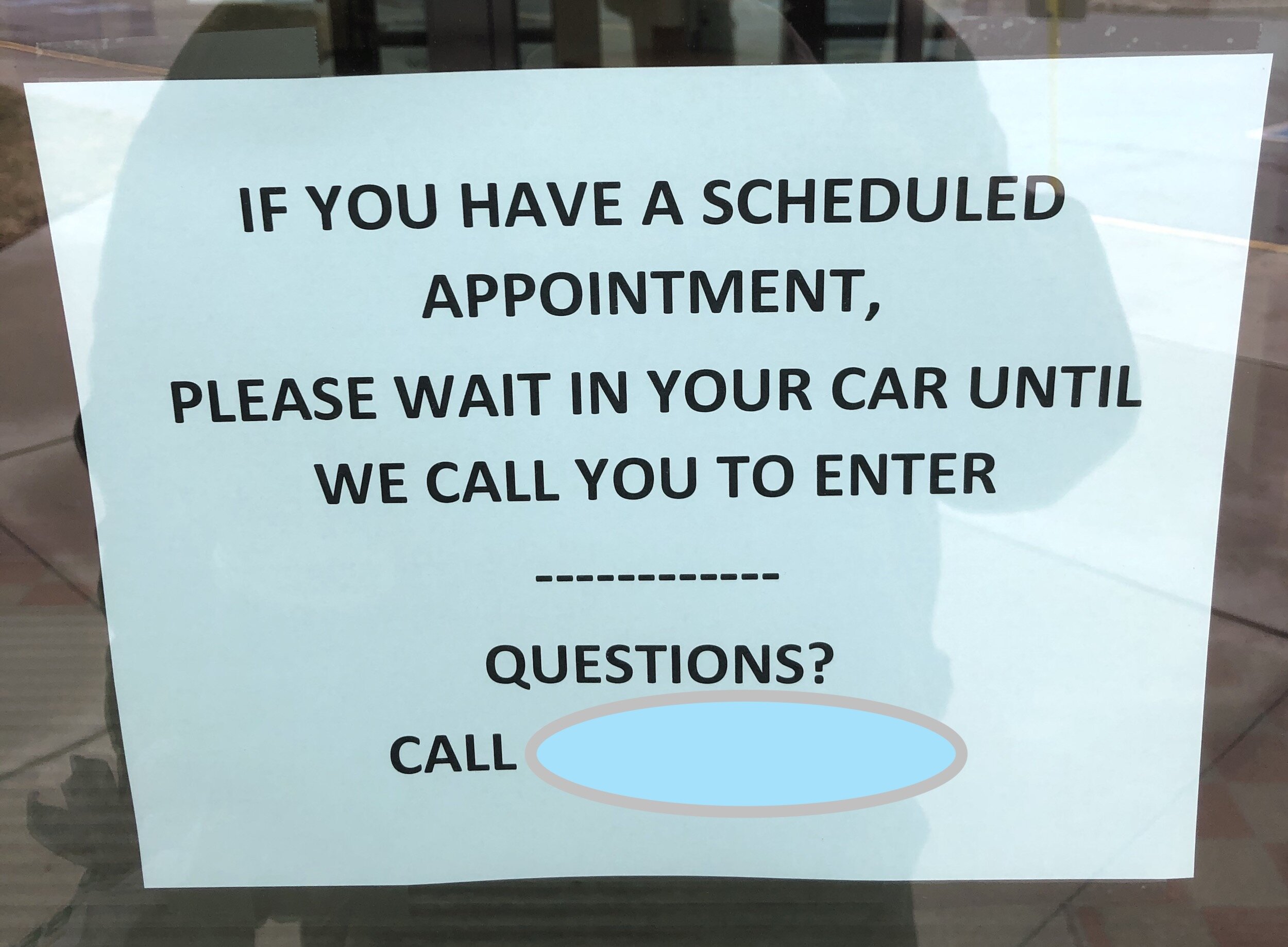The old MS 260 on bottom. (See the new screw in the brake handle just above the label?) The new saw, a 251C, on top. Now, I'm good to go!
A "Not So Old" Saw
I had a problem. My chainsaw, a new-ish purchase in the last few years, suddenly had the anti-kickback bar (the mechanism that cuts the power to the chain if your saw recoils toward you) dangling by one end. The problem? It had lost a screw . . . or so I thought. Therefore, I dutifully quit cutting and made the trip to, let's call it, the Local Shop that sells, among other things, Stihl saws.
I go to this Local Shop because it is convenient--it takes 10 minutes to get there. It's in a moderate-sized town and they have sold me oil, chains, and other chain-saw essentials. I didn't buy my saw from them but had noticed that they sell Stihl saws and do have a shop. (A few years ago I took my first Stihl saw to them for a repair and they pronounced it "dead"-now I'm wondering about that diagnosis . . . based on the experience in the rest of this story!)
The store where I bought the current Stihl, Nick's Farm Store, is a one-and-a-half hour round trip. It's in a very small town (which may disguise their true expertise . . . or expose my bias toward larger town repair shops), since they have always seemed very knowledgeable, very service-oriented, and their shop looks like a serious shop--for instance I noticed this time that they have a wall full of 55-gallon drums filled with various weights of oil and a large sign that reads, "Notice: Do NOT leave while filling!" (I immediately looked at the floor for signs of a past deluge of oil but if there was one there is no evidence. The shop floor looks clean and dry.)
I arrived at the local shop and tell them about my problem. The helpful clerk immediately consulted the computer, located the needed screw, secured the part and we attempted to install it. No go. He got a flashlight and we investigated further, "It looks like the screw broke off down in there," he said. I groaned inwardly. "This isn't good," I said to myself. He began to take apart the housing . . . .
I will spare you the details of the process, however, the result was that he called the "shop-guy" who looked it over and tried a few things while making a few comments such as, "I thought we might be able to get to it, but it's broken off down in the aluminum block.." later, "I guess a guy could try to use a reverse drill-bit and see if they could get it out of there," then, "I not sure it's going to be easy to find a small enough bit and getting it centered so that it might back out could be tricky." His final solution? To suggest that I could try to drill it out myself or they could repair it but they might have to get a new block and the labor would be expensive enough that "you might as well buy a new saw."
It didn't seem right to me. They are after all . . . the experts. it seemed reasonable to assume that they, unlike me, who has only dealt with this kind of problem once before, would have some experience with "broken-off screws" and a few "tricks up their sleeve" on how to approach the problem.
They didn't seem to be very interested in finding a solution or, perhaps, they were not confident that their solution would avoid spending a lot of time for which they would want to be paid (no argument there).
So, with great trepidation (I am not overly-optimistic about my mechanical skills) i went home, found some 1/16th inch left-handed drill-bits (not an easy find) on Amazon and ordered them. When they came, I began, aided by my wife, to try and get the drill-bit centered and to drill out the offending screw. Ringing in my head were comments made by the expert . . . "It would be easy to ruin the aluminum block," and "it's not going to be easy to get a small-enough bit or to get it centered," and "you might get lucky!"
After an hour, or more, we had made no real progress. There were two holes in the screw stud. One, a bit off-center, and deeper. The second, more central, but shallow. I got the feeling we were going to keep slipping into the deeper hole which was getting dangerously close to the threads I feared. The screw had not moved at all.
My wife, no more confident in my skills than I have in myself (having a father with Svengali-like knowledge, skills, and tools in all handy-man areas), said, "Maybe you should just take it back to where you bought it and see what they say." That was all I needed. It is what I had been thinking but I had not wanted to admit defeat, or make the time-consuming and potentially costly trip--remember it was going to cost as much as a new saw according to the expert! But the lack of success and my wife's encouragement ended the doubt. I packed it up and left immediately.
I'll spare you the rest of the painful journey, except to say that at Nick's I bought a back-up saw so now I have two in case one breaks down again, and I'll jump to the end of the story. They looked at the broken screw, said "Yep, we''ll have to drill that out of there." Kept the saw for a week. Called that it was finished and I went down to fetch it. The bill? $43. Yes, $43! To replace the saw I had would have been almost $700. The "back up saw I purchased was only $400 plus change.
Moral of the story? Not all experts are the same. Nick's Farm Store have experts in repairing Stihl saws. My local guys? Not so much. Undoubtably they are experts in other things but I won't consult them on my saws again. In fact, the next time I make the trip to Nick's I may take that old broken saw (I've kept it out of nostalgia . . . it was my first!) and see what they think of it. Maybe it's not dead.
A Business Parallel
A parallel? In the consulting work I do, it is always interesting to me who leaders rely upon to help them with "people issues." Usually, it is a business consultant from a one-man shop or a large corporate consulting business. What expertise do they really have in understanding human systems? Often, based on the recommended solutions, they remind me of the "local guys" they propose generic solutions that leaders themselves could implement, they warn that the solutions might be "too costly," they are content with-or limited to-proposing a solution that requires the leader to do the work and they leave them with a solution that may or may not work.
Leaders, if your problem is a business problem then by all means find a real expert who knows business. But if your problem is a people problem then don't trust the "local" expert who knows about business, finances, legalities . . . and works with people . . . find someone who knows about people. You see I need an expert in chain-saw repairs not in chain-saw sales. Get over the fear. Finding the right expert may NOT cost you more time and money. A real expert knows how to solve the problem. They have the tools, knowledge, and skills to work efficiently which helps the bottom line. In the end, a $43 repair to salvage a good saw is better than "junking it" and making a $700 purchase-especially when it leaves you with only one good saw..
Epilogue
By the way, I mentioned that I bought a back-up saw at Nick's. Since they knew how to repair my MS 260, I knew my "second saw" did not need to be a professional grade saw. So I bought a "step down" from my original saw--a savings of over $240. For less than $500 I now have two quality saws.
The Local Store didn't totally lose out entirely. They sold me the screw for the handle and some oil. But they could have sold me a new saw and a repair. While I'll continue to buy my emergency bar oil and 2-cycle oil at the Local Store, I will continue to make the trip to Nick's Farm Store for any "important" purchases!
The day I finished this blog post I got a postcard in the mail. Here it is . . .
Postmark . . .
Message . . . what a great store!













